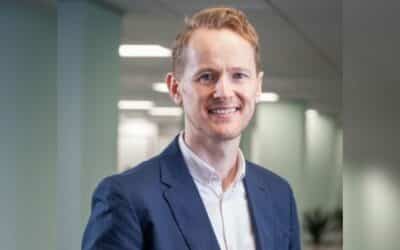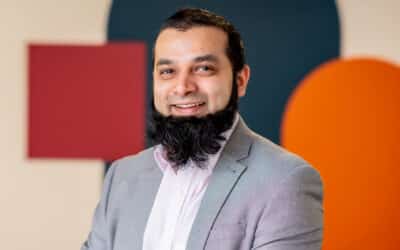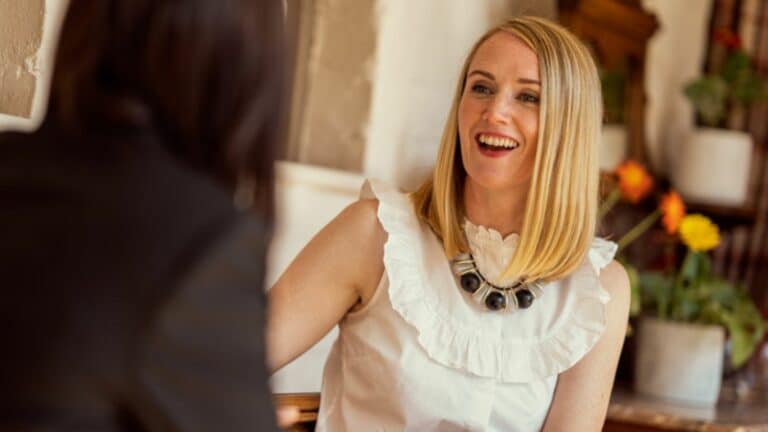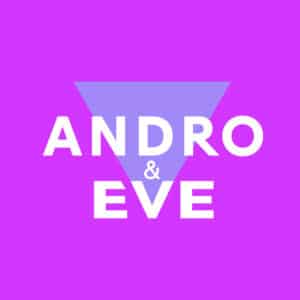Rachel McBryde, a former BBC journalist, founded Newcastle-based communications agency McBryde & Co in 2019.
Crowned as the most recent Small PR Consultancy of the Year by the Chartered Institute of Public Relations, the team at McBryde & Co works with the likes of the NHS, The Alnwick Garden, Northumberland County Council, SMD and Environment Bank.
Delving into her biggest job challenges to advice for someone looking to follow a similar career path, Rachel McBryde shares her career journey and words of advice.
How did you first get into your industry?
I always loved writing stories – I wrote my first ‘novel’ at age 11, a children’s book called Charlotte and the Frog for my sister. That led me to training as a journalist and I worked for BBC Worldwide during the early stages of my career. Eventually, I chose to return to my native North East and take a sideways move into communications.
I worked in-house for a local authority, studied for my Postgraduate Diploma in Public Communications and then moved into an agency. I quickly learned that the fast-paced world of an agency suited my busy mind. Five years ago I set up McBryde & Co and never looked back.
What do you love about your job?
So much. From helping businesses and organisations tell their unique stories and seeing them grow and prosper as a result, to supporting my team to develop and giving them opportunities to learn new skills. And I still love the fast pace, the mental agility required to think quickly and switch track at a moment’s notice.
The industry and our clients are constantly evolving and I still love learning and innovating. We’re currently working towards BCorp status, which is incredibly interesting and engaging, and as a B2B agency we focus on green energy, renewables, professional services and public sector work. So ensuring we’re constantly developing our knowledge and keeping up to speed in those sectors to help our clients to reach their full potential is challenging and rewarding.
Who – or what – has inspired you in your career?
I’ve learned from so many people over the years. When I was 15 I did work experience at my local newspaper. The editor inspired my early career in journalism and we stayed in touch over the years. He’s sadly no longer with us, but I always remember him giving me that early opportunity. In terms of communications, I spent 13 years at the long-standing agency, Gardiner Richardson, and its co-founder Lucy Gardiner taught me what it was to be an empathetic leader and that female founders do exist and can succeed.
What are the biggest challenges about your job?
Sometimes you have to be comfortable with being uncomfortable. It’s about constantly juggling; clients, briefs, campaigns, trends, teams, plus all the things that go on outside work and in the wider world; there’s always a curveball. I believe in being the best version of yourself within the confines of what’s possible. No one is perfect, or the complete package. Keep learning. Keep your integrity intact. And remember to try and have fun along the way.
What skills have been the most crucial to you succeeding in your career so far?
The written word, plus the ability to create and maintain meaningful relationships, remain at the core of my work. AI is upending that for our industry right now, and whilst I think many of the AI tools in development are super-useful in terms of efficiency, there is no substitute for the human psyche, connection and the creative process.
It’s interesting to see social media platforms offering users the opportunity to ‘write a post using AI’. It saves time and brain power, sure, but we must be careful that our tone of voice and personality doesn’t become completely vanilla, or that we eventually become so reliant on AI to spit out content that we completely deskill our creative selves. I can see a day when we come full circle, and the content that stands out is obviously not AI-generated and people engage with it because it retains emotion and a human tone.
What was your first salary and what could someone getting into the industry expect to earn nowadays?
As an advertising assistant at the BBC, with a London weighting, I was on £12,000 a year and I thought I was made! At McBryde & Co we’re a living wage employer; people must be paid a fair wage for a good job.
What education or training would be most useful for someone looking to follow your career path?
We have people from a whole host of backgrounds in the business, but English, media, PR, marketing or journalism usually form part of their training. Curious and invested are two of our core values, and we look for those traits in our people. A thirst to learn and progress, push boundaries, question the world and the status quo, and think about how to constantly improve. And work on your personal portfolio. Whether that’s developing social media content, creating a website where you blog about your passions, or gaining work experience at your local agency; it all helps to set you apart.
What advice would you have for someone looking to follow your path?
Think about what sets you apart from the competition. For graduates, having a degree is expected, but what else have you accomplished? We have recently taken on a graduate who volunteered through the local Chartered Institute of Public Relations to help with its annual awards ceremony. We met her at the event and she followed up and asked if she could intern with us half a day a week at the same time as studying. Six months later she’s writing her dissertation and working for us three days a week. The plan is to take her on full-time once she’s finished her studies. If she hadn’t put herself forward through volunteering, or approaching us at the awards, that would never have happened.












